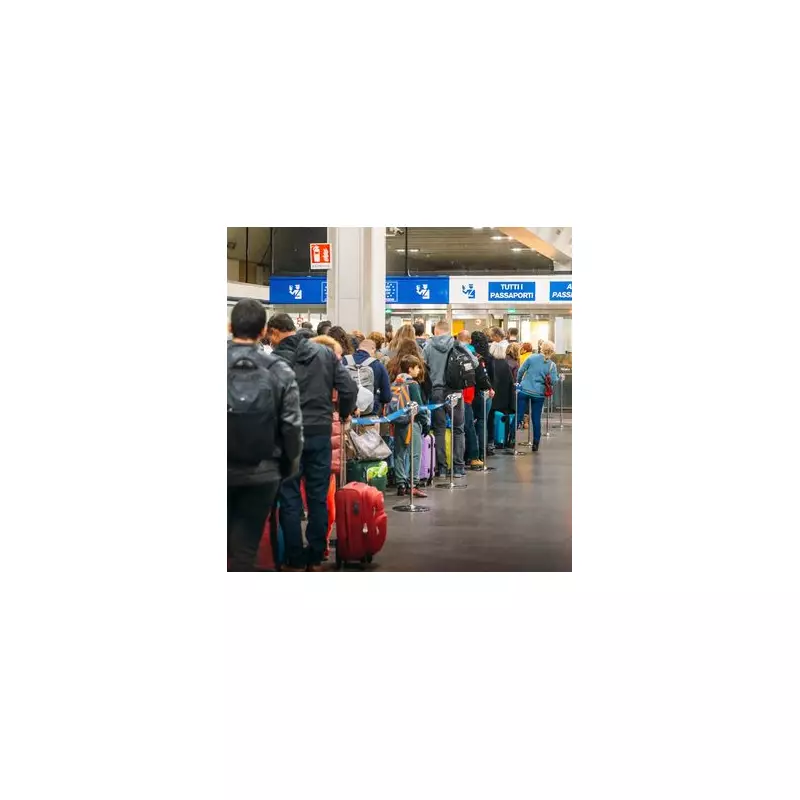
British holidaymakers are facing a summer of travel chaos as European authorities prepare to roll out a stringent new border control system. The highly anticipated Entry/Exit System (EES) is slated for introduction in October 2024, promising unprecedented delays and massive queues at key ports and terminals across the continent.
The automated IT system, designed to register non-EU nationals each time they cross an external EU border, will require the meticulous collection of biometric data. This includes fingerprints and facial scans for every traveller, a process experts warn will drastically slow down processing times.
Potential for 14-Hour Queues and Gridlock
The impact is predicted to be most severe at the Port of Dover, where officials have sounded the alarm. The port's CEO, Doug Bannister, has presented a stark warning to a parliamentary committee, outlining a doomsday scenario where wait times could balloon to a crippling 10-14 hours.
This isn't just an inconvenience for tourists. The potential for gridlock threatens to halt the flow of essential goods and services, with the port acting as a critical artery for the UK's supply chain. The situation is so dire that the French government is being urged to significantly increase its border control capacity from the current 12 booths to over 50 to mitigate the coming crisis.
A Perfect Storm for Ferry Passengers
The new checks will create a logistical nightmare for ferry operators. Unlike air travel, where passengers are processed in a controlled terminal, coach passengers on cross-channel ferries will all need to disembark to complete their EES registration in the port building before continuing their journey.
This mandatory in-person registration for up to 50 people per coach will create immense bottlenecks. The process is not a one-time event either; the EES will require biometric checks every time a traveller enters the EU, though subsequent exits will be quicker.
A Looming Threat to Summer Getaways
While the official launch is set for autumn, its shadow will undoubtedly fall over the entire summer season. Travel associations and industry leaders are pleading for a delay, arguing that infrastructure is simply not ready. The fear is that the system's introduction will cause such significant disruption that it could deter travel altogether, dealing a heavy blow to the tourism industry on both sides of the Channel.
For now, the message to British travellers is clear: brace for disruption. The post-Brexit landscape of European travel is about to get a lot more complicated, and your next trip to the EU will require more time and patience than ever before.





